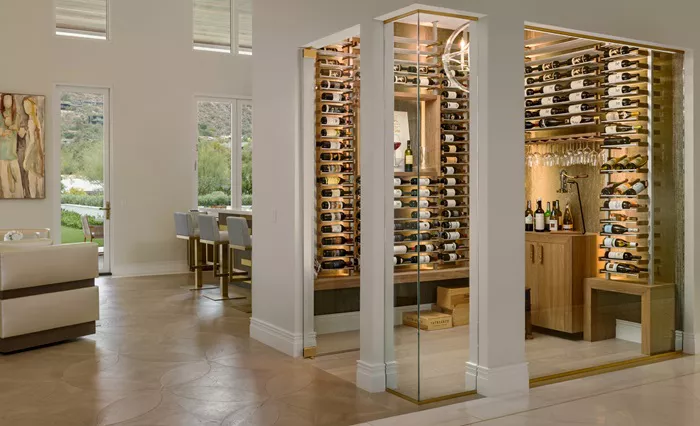Artificial intelligence (AI) is rapidly transforming the wine industry, extending far beyond its traditional tech-sector boundaries. The integration of advanced robotics and AI-driven marketing tools is reshaping wine production, sales, and consumer engagement, signaling a digital innovation era for the sector.
Vinexpo Asia 2025 showcased this technological evolution over three days featuring more than 30 masterclasses, panels, and tastings. A highlight was a session dedicated to how AI is blending science, automation, and creativity to redefine the future of wine.
Dr. Anja Zimmer, editor-in-chief of Germany’s Meininger’s International, delivered the keynote address, emphasizing the broad impact of AI and new technologies on the wine and spirits industry. The discussion focused on innovations intersecting taste, sales, and digital transformation.
Zimmer identified two primary drivers of technological progress in the industry: automation and personalization. These factors guide innovations from vineyard management through to marketing strategies.
Automation Enhances Vineyard and Cellar Operations
Technological advancements in vineyards include autonomous tractor robots, NASA-derived monitoring systems for vine health and sustainability, and recently developed AI-powered smart glasses designed to assist in pruning. Zimmer highlighted the glasses as a simple yet powerful tool: by connecting to a smartphone, they visually guide unskilled workers on precise pruning locations, addressing labor shortages and training challenges.
On the production side, Alberto Bermejo, Asia Pacific export director at Spain’s Felix Solis Avantis, presented their €70 million investment in a fully automated, robotic cellar. The 18-storey facility, capable of storing 130,000 oak barrels, fills, empties, and cleans 90 barrels per hour. Powered by 678 solar panels, the building boasts full sustainability and an ‘A’ energy rating. Bermejo emphasized that automation reduces labor needs significantly—with only three employees currently managing the operation—representing the company’s vision for the winery of the future.
AI Drives Personalized Marketing and Consumer Engagement
In marketing, AI plays a pivotal role in tailoring customer communications to enhance engagement and boost sales. Rick Choo, founder and sommelier at Singapore’s The Guild Collective, and Matthew Lamb, Group Beverage Director at The Lo and Behold Group, discussed AI’s application in organizing pairing dinners, masterclasses, and tastings. Both emphasized AI’s ability to optimize marketing resources and target specific audience segments effectively.
While Choo acknowledged AI’s utility in helping consumers—especially beginners—choose wines, he stressed that AI cannot replace the sensory expertise and emotional connection provided by sommeliers. Lamb noted that AI tools free up time and redistribute resources, enabling more efficient marketing without additional human capital investment.
Both experts agreed that AI could counteract waning wine interest among younger consumers by facilitating easier entry points through digital engagement and trend-based marketing.
Practical AI Applications and Cautionary Notes
Zimmer outlined practical strategies for wine businesses to leverage AI, particularly through social media. AI can generate targeted content efficiently, analyze consumer interactions, produce personalized messaging, and monitor engagement trends. However, she warned against over-reliance on AI-generated content, emphasizing the risks of inauthenticity, misinformation, and loss of human connection.
Research from McKinsey & Co cited by Zimmer revealed that 75% of consumers desire simpler purchase navigation both online and in-store, while 66% seek tailored messaging reflecting their preferences. Zimmer concluded that personalization has shifted from a luxury to a necessity in consumer marketing.
Examples of AI-driven innovations include:
- Tastry: Combines chemical analysis with AI insights to recommend wines based on flavor perceptions.
- Preferrabli: Integrates retailer inventory data with recommendation software to offer personalized product suggestions.
- WilliWein: A German AI robot sommelier valued at €50,000, capable of serving, opening, pouring, and engaging with customers. In a demonstration, WilliWein correctly noted the popularity of Mediterranean rosé in Singapore’s tropical climate. However, Choo pointed out a discrepancy, noting that premium wine and sake dominate Singapore’s market, not rosé.
Lamb expressed confidence that AI would not replace human interaction in wine experiences, highlighting the industry’s inherently social nature. “The greatest bottle of wine is a bottle shared,” he remarked, underscoring the enduring value of personal connection.
Conclusion
The consensus among industry leaders is that AI represents a powerful tool to enhance efficiency and personalization in the wine sector. Success lies in harnessing AI where it delivers genuine value while safeguarding authenticity and human engagement. The wine industry stands at a crossroads where embracing digital innovation can drive sustainable growth and consumer connection in a rapidly evolving marketplace.
You Might Be Interested In:


